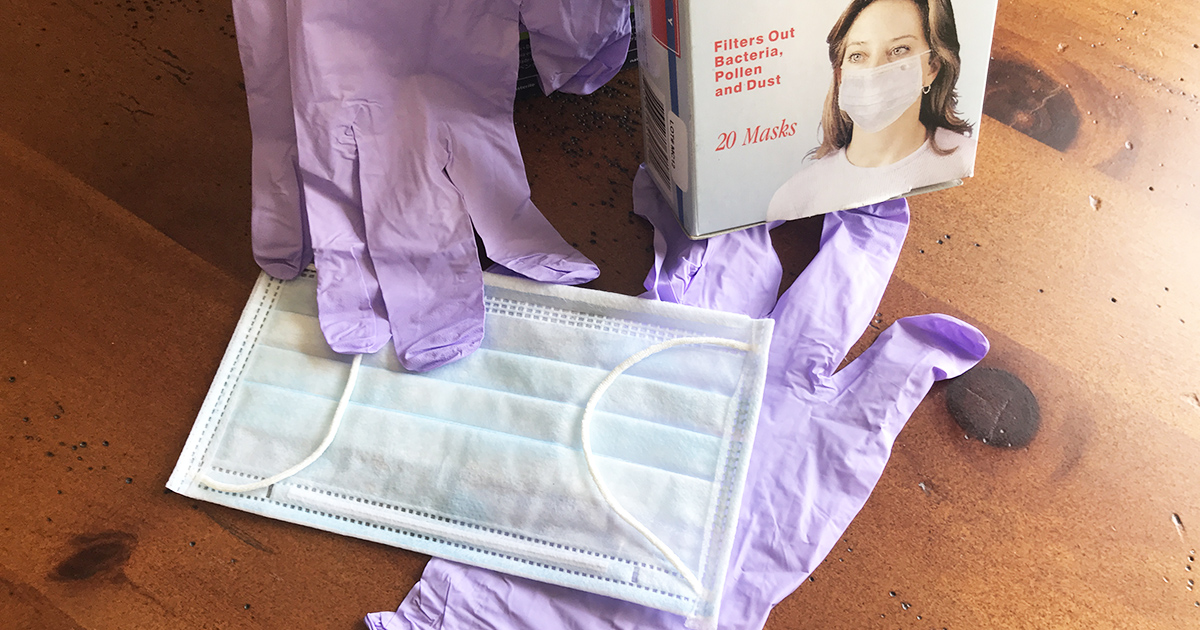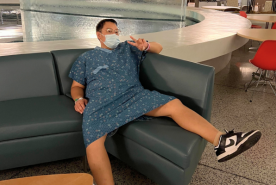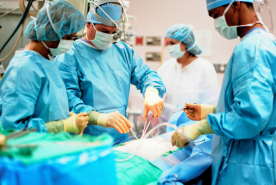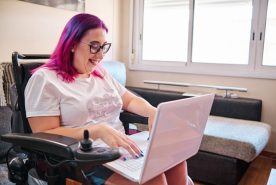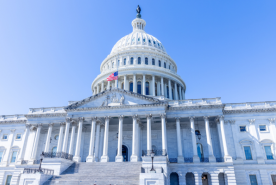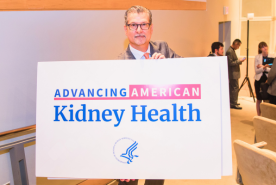April 16, 2020
By Kevin Longino, CEO of National Kidney Foundation and kidney transplant patient
Dialysis Equipment Shortages
In last week’s blog I highlighted one of the underreported stories of COVID-19, which is that the virus wreaks havoc on your kidneys and a whole group of people with no previous history of kidney disease now face an acute kidney injury, which may require dialysis. We are tracking reports of shortages of necessary dialysis equipment such as machines, solution and disposable supplies like cartridges needed for continuous renal replacement therapies to treat patients who experience acute kidney injury as a result of coronavirus. Our medical leadership are working with hospitals and health centers to provide temporary solutions and guidance for this urgent issue; and our government relations team has been in conversations with the U.S. Department of Health and Human Services as well as other government officials to identify ways to increase availability of this important equipment.
Supporting the Health and Wellbeing of All Americans
NKF joined with other disease nonprofits representing 120 million Americans with pre-existing conditions to urge Congress to enact legislation which supports the health and wellbeing of all Americans, while also slowing the spread of COVID-19. NKF, along with 32 other groups, called on Congress to re-open enrollment in the Affordable Care Act marketplaces so that patients can access insurance coverage; provide additional funding for state Medicaid programs; require testing, treatment, vaccines, and recovery services to be provided at no-cost to consumers; and provide subsidies for individuals who have lost employer sponsored coverage, among other things. These critical points are necessary to ensure that patients get the help they need to stay safe during this public health crisis, and that our healthcare system remains viable and available to them after it’s over. Read the full letter here.
Support through Facebook
There's a lot of information circulating about COVID-19 and it can be hard to separate fact from fiction. NKF is hosting another Facebook Live this week featuring an expert on the front lines: Dr. Sumeska Thavarajah, nephrologist and an assistant professor of medicine at the Johns Hopkins University School of Medicine. Dr. Thavarajah will provide the latest considerations for people with kidney disease, including those on dialysis and transplant recipients, and address questions such as immunity to COVID-19 after you’ve already had it, can medications prevent COVID-19, and the best way to manage telehealth visits with your doctor. Join us later today, Thursday, April 16, 2020, at 3:30 p.m. ET/12:30 p.m. PT, register here. If you don’t have Facebook you can also join via a webinar.
Staying Safe during Medical Procedures
I recently heard about a kidney transplant recipient, a man my age who had his transplant as long as I’ve had mine, die from COVID-19 and that hit very close to home. The increased risk for severe consequences and death from coronavirus is something kidney patients, and others with chronic diseases, live with and it’s important that everyone does their part to help keep vulnerable populations safe, at every touch point along the way.
I recently had to get my labs done because my nephrologist wanted to adjust my medication dosage. I went to the hospital prepared: gloves on and wearing a mask. I even brought my own pen from home because I knew there was sign-up sheet for patients. I went early and was the second person to arrive. I took my necessary precautions only to discover that the phlebotomist was not even wearing a mask, only gloves. This small touch point could make the difference to a patient contracting coronavirus or not. It’s critical that all healthcare workers who come into contact with kidney patients, and others like us, be provided with all the personal protective equipment necessary to keep us safe.
To reduce exposure from other patients in a hospital or laboratory setting, it’s also important to allow remote laboratory visits for those most at risk. NKF has been advocating for the Medicare program, as well as private insurers, to pay for a lab technician to come directly to the patient's home to collect their blood, instead of having the patient go to an outpatient lab, dialysis facility, or transplant center. Changes like these could help keep patients safe and are important considerations during this national health crisis.
As always, please continue to check our COVID-19 resource page where we post all the latest information on issues facing our community. If you have questions or need support, please contact our toll free patient information help line by calling (855) NKF-CARES, (1-855-653-2273) or by email nkfcares@kidney.org. And join our free online discussion forums.
Be well and stay safe.
